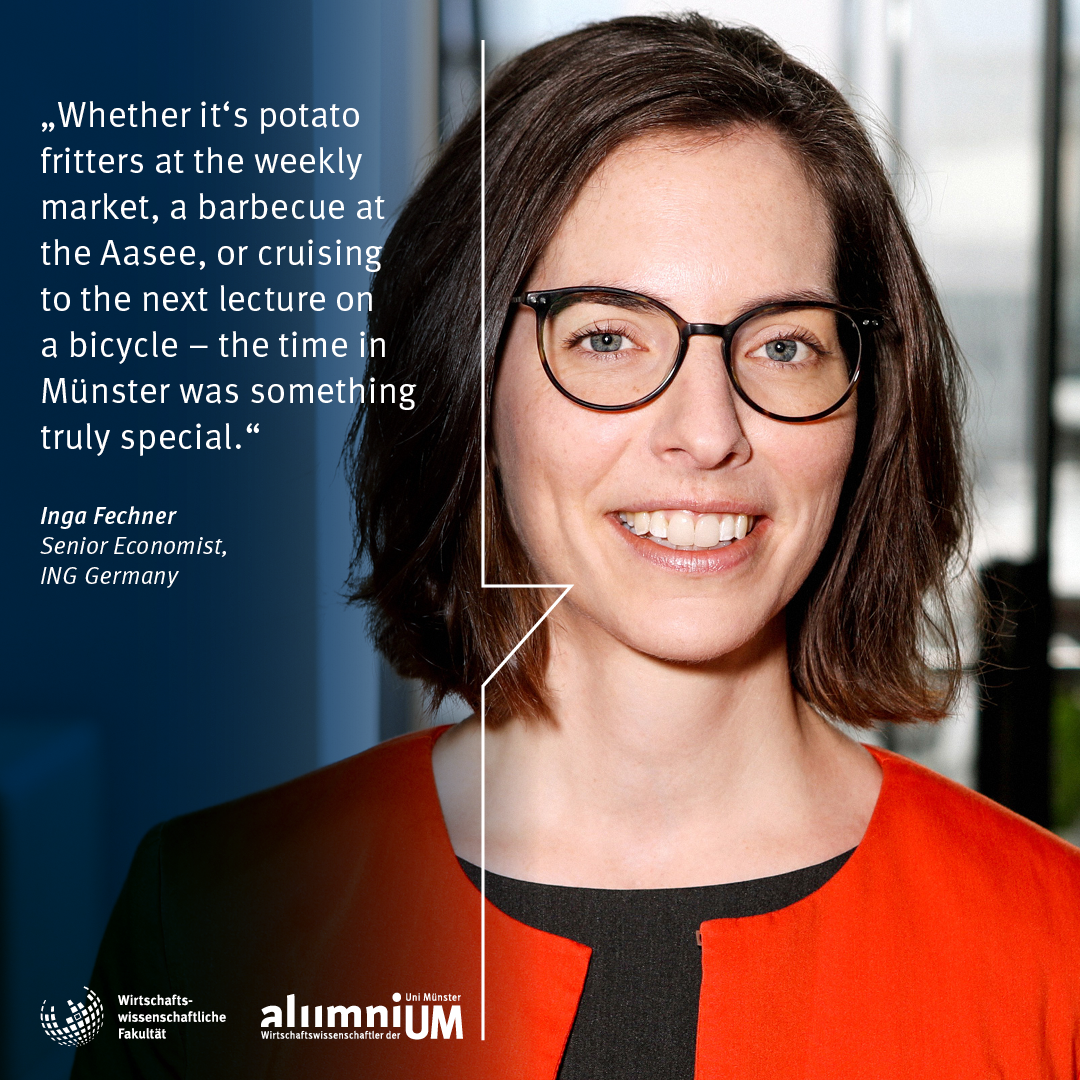Alumni Story: Inga Fechner

Artificial intelligence and the associated technological developments are becoming increasingly important and are almost indispensable in both our daily lives and our work environment. In particular, this development has led to significant changes and challenges in the professional environment, which both employees and employers need to adapt to. Inga Fechner, an economics alumna and now Senior Economist at ING Germany, the third-largest bank in Germany with over 9 million customers and the largest direct bank in the country, will tell us how these changes are noticeable in the banking industry.
In the interview, Inga Fechner also shares how she continues to benefit from her study-abroad experiences during her studies and gives us more insights into her workday at ING Germany.
Dear Ms. Fechner, what exactly does a Senior Economist do at ING?
As a bank economist, I examine current macroeconomic developments and trends to inform both internal and external stakeholders. This includes classic economic indicators such as economic growth, inflation, or capital market interest rates. Additionally, I analyze global trade relations and the potential impact of artificial intelligence on the economy and the working world. My tasks range from large reports and macro updates to podcast recordings and interview requests. Sometimes, it's a calm workday where I can delve deep into the subject matter, and other times, the economic world and the geopolitical environment can be hectic, requiring quick, ad-hoc assessments.
How do you see the role of artificial intelligence (AI) and other technologies in the future of your work environment?
The use of generative AI already significantly facilitates my daily work today. Whether it's summarizing reports, analyzing large data sets, translations, or text improvement suggestions – AI delivers answers in seconds. Particularly when working with large volumes of data, the use of AI and other technologies is indispensable. One big advantage is that you can create forecasting models with AI without having to master the underlying programming language. Despite the enormous potential, however, the right data foundation remains a challenge, and quality and plausibility checks are still necessary in the end. Therefore, I fundamentally see AI as complementary rather than necessarily replacing – some tasks will disappear, but new opportunities will arise, and there will be more room for in-depth analyses.
You had two study-abroad experiences during your studies. Which experiences from that time help you in your daily work now?
The study-abroad experiences are a very special memory and a real gift for life. It’s great that universities offer opportunities to get to know another country relatively easily. I benefited immensely and still do because spending time in another country offers new perspectives and broadens one’s horizons. By getting to know different cultural circumstances and overcoming language barriers, you can approach new things with openness and curiosity. This is particularly advantageous in an internationally oriented work environment. And some friendships, for example with people in Belgium, Japan, or the USA, still exist today. I even met the godmother of my daughter during my stay in Italy.
What was your most beautiful experience at the School of Business & Economics?
The time as a student assistant at the Chair of Monetary Economics, at Stadtgraben remains a particularly fond memory for me. The exchange and collaboration with the entire chair team made this time very special. I not only gained valuable insights into the workings of the academic world but also learned some amusing anecdotes about various lecturers during the shared barbecues or coffee breaks.


